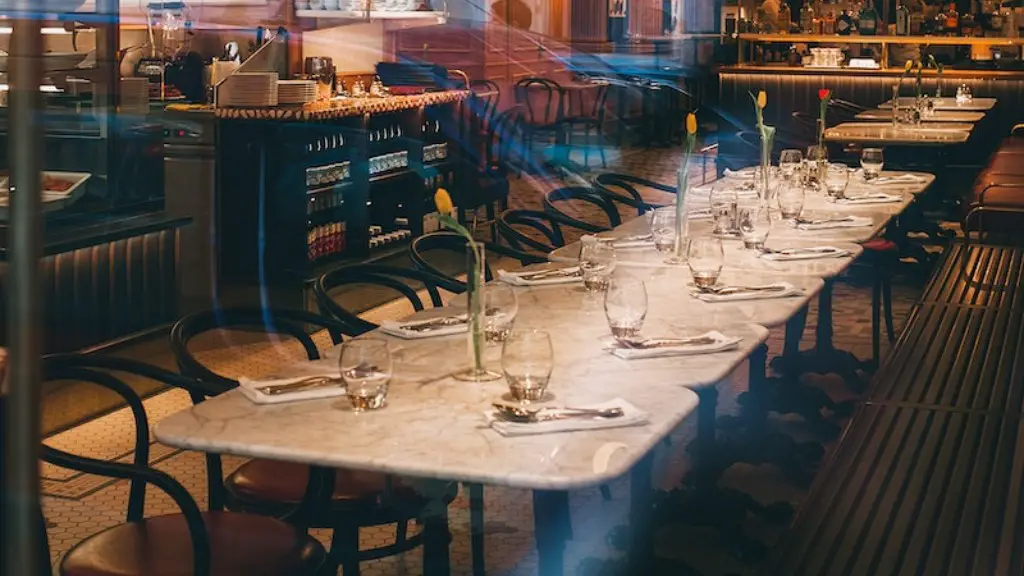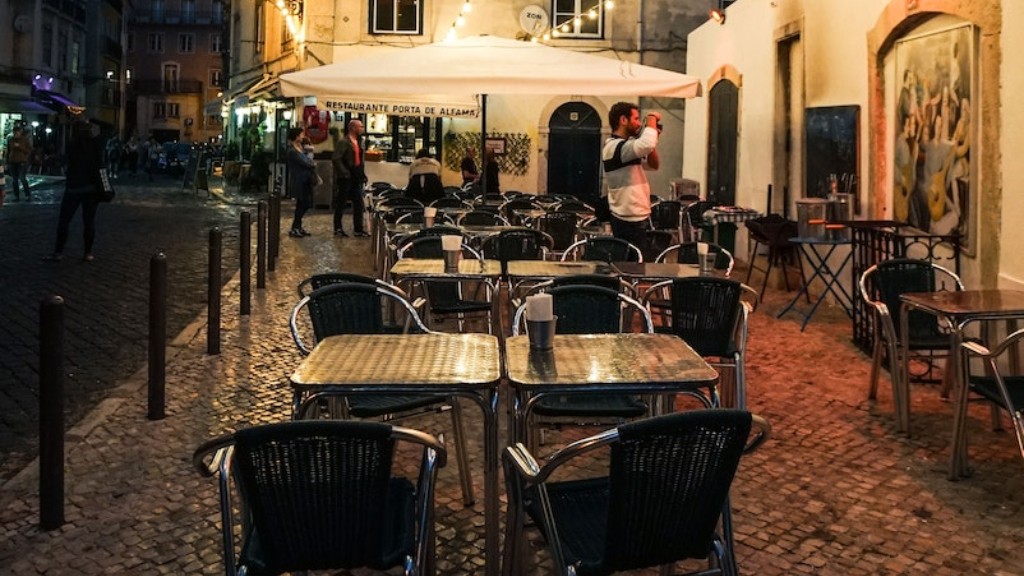If you’re going to open a restaurant in New Jersey, the first step is to choose a location. Once you’ve found a suitable spot, you’ll need to obtain the necessary permits and licenses from the state. Then, it’s time to start planning your menu and hiring staff. Finally, you’ll need to promote your restaurant to get customers through the door. With a little hard work and dedication, you can be successful in the restaurant business in New Jersey.
The first step is to come up with a business plan. This will include your menu, your target market, your location, and your financing. Next, you will need to obtain the necessary permits and licenses from the state of New Jersey. Once you have all of your ducks in a row, you will be ready to open your restaurant doors to the public!
What are the requirements to open a restaurant in New Jersey?
In order to open a restaurant in New Jersey, you will need to obtain the following licenses and permits:
Business License: You will need to obtain a business license from the state of New Jersey.
Certificate of Occupancy: You will need to obtain a certificate of occupancy from your local municipality.
Food Handler’s License: You will need to obtain a food handler’s license, also known as a food service license, from the state of New Jersey.
Seller’s Permit: You will need to obtain a seller’s permit from the state of New Jersey.
Liquor License: You will need to obtain a liquor license from the state of New Jersey.
Catering Business License: You will need to obtain a catering business license from the state of New Jersey.
Food Facility Health Permit: You will need to obtain a food facility health permit from your local municipality.
Employee Health Permit: You will need to obtain an employee health permit from your local municipality.
1. Check Food Business Name Availability: You want to make sure that the name you choose for your food business is available and not already being used by another business.
2. Register Your Food Business: You will need to register your food business with the state of New Jersey.
3. Use Your Social Security Number or Apply for a Federal Identification Number: You will need to provide your social security number or apply for a federal identification number for your food business.
4. Register Your Food Business For Tax Purposes: You will need to register your food business for tax purposes with the state of New Jersey.
5. Obtain A Food Safety Certification: You will need to obtain a food safety certification in order to operate your food business.
6. Get Properly Insured: You will need to get your food business properly insured in order to protect yourself and your business.
7. Follow All Local, State, and Federal Regulations: You will need to follow all local, state, and federal regulations in order to operate your food business.
8. Get A Food Business License: You will need to get a food business license in order to operate your food business.
9. Meet All Food Safety Standards
How do I open a small restaurant
If you’re thinking about starting a restaurant, there are a few things you need to do to get started. First, you need to choose a concept and brand for your restaurant. Then, you need to create a menu. Once you have a menu, you need to write a restaurant business plan. After your business plan is complete, you’ll need to obtain funding. Once you have funding, you can choose a location and lease a commercial space. Finally, you’ll need to obtain the necessary permits and licenses. Once you have all of that in place, you can begin to design your layout and space. Then, you’ll need to find an equipment and food supplier.
All restaurants and any other premises used for a food-related business must be registered with their local authority. Registration is free, cannot be refused, and must be done at least 28 days before the restaurant opens.
How much is a food license in New Jersey?
A food handler’s license in New Jersey costs up to $15 per employee. The license is valid for three years and can be obtained through the New Jersey Food Handler Training program.
A decent-sized restaurant can cost anywhere from Rs 15 lakh to Rs 16 crore to set up, depending on the menu, location, and other factors. Of course, the size of the restaurant will also affect the cost.
How much does it cost to own a small restaurant?
There are a number of factors that can affect the overall cost of starting a restaurant in 2021. Depending on your location, equipment, furniture, and rent, the average startup cost can range from as little as $175,000 to well over $700,000. Be sure to do your research and understand all of the potential costs before making any final decisions.
I was surprised to learn that restaurant owners can make such a wide range of incomes. It’s interesting to note that the national average is much lower than I would have guessed. This just goes to show that there is a lot of variation in this field.
Is a small restaurant profitable
Yes, restaurants are profitable, but they have low profit margins. Profitability depends on many factors including the size and type of restaurant, as well as economic ones. It takes an average of two years for a new restaurant to turn a profit.
The costs of starting a ghost kitchen can range widely, depending on the size and location of the kitchen, as well as the equipment that is required. However, in general, startup costs are estimated to fall between $10,000 and $50,000. In some cities, there may be local providers who offer ghost kitchen options for less than $10,000, so it is worth shopping around to find the best deal.
What is a small restaurant called?
A bistro is a small restaurant or bar typically serving simple, hearty fare. These establishments began popping up in France in the early 19th century and sometimes had a bohemian atmosphere. Today, bistros can be found all over the world and vary widely in their style and offerings.
This subclass covers the provision of food services to customers, whether they are served while seated or serve themselves from a display of items. The meals provided are generally for consumption on the premises and only non-alcoholic drinks are served.
Can I run a resturant on my home
Before you start your food business from home, it is important to check for the licenses and permissions you need. Without these licenses, you could run into trouble. FSSAI license is one of the key requirements. You will also need a shop act license, health trade license, GST registration, and trademark registration for your brand to get started.
In general, food handlers should have training equivalent to level 2 in food safety and hygiene Supervisors and managers should have training to at least Level 3 in supervising food safety and hygiene However, in the UK, food handlers don’t have to hold a food hygiene certificate to prepare or sell food.
Can you cook at home and sell food in NJ?
Yes, you can sell homemade food to retail outlets like restaurants and grocery stores in New Jersey, but you cannot sell them for onsite consumption. You can only sell them at consumers’ homes, farmers’ markets and farm stands.
When choosing a restaurant’s business model, you will need to consider the market potential, cuisine, your budget, and capability. The cost of starting a restaurant can be anywhere between ₹5 lakhs to ₹2 crores. Choose a model that best fits your goals and capabilities.
How do I get a food handlers permit in NJ
In New Jersey, you need to take an approved food handler course and pass the test in order to get a food handler card. You can then present your training certificate to your employer or local health authority.
There are a few different types of restaurants that are known for having high profit margins. Bars tend to have the highest margins, followed by diners and food trucks. Delivery and pizzeria restaurants also typically have high margins. These types of restaurants tend to do well because they have low overhead costs and customers are willing to pay a bit more for their food.
Conclusion
1. Determine the kind of restaurant you want to open. Will it be a franchise, an independent restaurant, or a chain?
2. Research the restaurant industry in New Jersey. Look at things like average revenue, number of restaurants, average profits, etc.
3. Find a location for your restaurant. This is one of the most important decisions you will make, as the location will impact everything from your customer base to your overall costs.
4. Obtain the necessary financing for your project. This could involve anything from personal savings to small business loans.
5. Develop a business plan for your restaurant. This should include things like your marketing strategy, financial projections, and operating plan.
6. Obtain the necessary permits and licenses for your restaurant. This will vary depending on the type of restaurant you are opening and the municipality in which you are located.
7. Hire staff for your restaurant. This includes everything from cooks and servers to management and janitorial staff.
8. Purchase supplies and equipment for your restaurant. This could range from small items like dishes and silverware to larger items like ovens and freezers.
9. Promote your restaurant. This could involve everything from
The process of opening a restaurant in New Jersey is not as complicated as one might think. There are a few simple steps to follow and with some helpful tips, your restaurant can be up and running in no time. First, you will need to choose a location. Once you have found a suitable location, you will need to obtain a license from the New Jersey Division of Consumer Affairs. Next, you will need to purchase insurance for your restaurant. Lastly, you will need to hire staff and develop a menu. With these few simple steps, you can be on your way to owning a successful restaurant in New Jersey.





